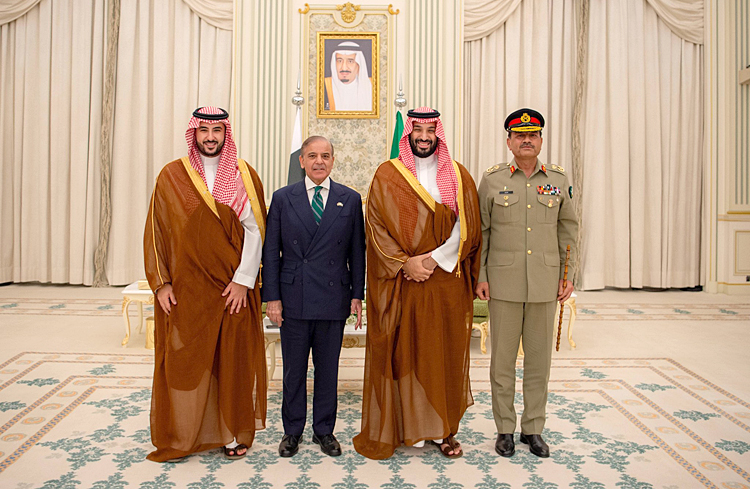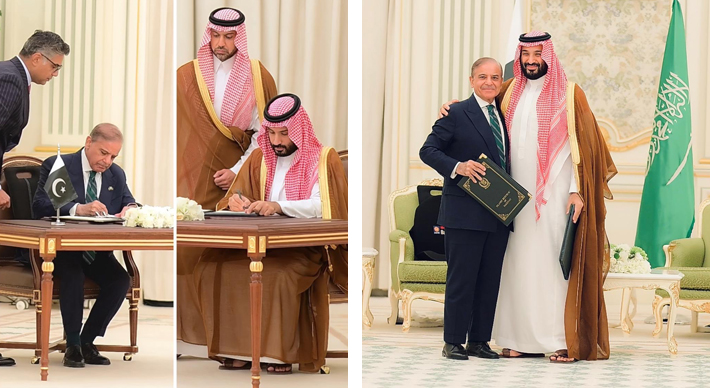INDIAN ARMED FORCES CHIEFS ON OUR RELENTLESS AND FOCUSED PUBLISHING EFFORTS

The insightful articles, inspiring narrations and analytical perspectives presented by the Editorial Team, establish an alluring connect with the reader. My compliments and best wishes to SP Guide Publications.

"Over the past 60 years, the growth of SP Guide Publications has mirrored the rising stature of Indian Navy. Its well-researched and informative magazines on Defence and Aerospace sector have served to shape an educated opinion of our military personnel, policy makers and the public alike. I wish SP's Publication team continued success, fair winds and following seas in all future endeavour!"

Since, its inception in 1964, SP Guide Publications has consistently demonstrated commitment to high-quality journalism in the aerospace and defence sectors, earning a well-deserved reputation as Asia's largest media house in this domain. I wish SP Guide Publications continued success in its pursuit of excellence.
- A leap in Indian aviation: Prime Minister Modi inaugurates Safran's Global MRO Hub in Hyderabad, Calls It a Milestone
- All about HAMMER Smart Precision Guided Weapon in India — “BEL-Safran Collaboration”
- India, Germany deepen defence ties as High Defence Committee charts ambitious plan
- True strategic autonomy will come only when our code is as indigenous as our hardware: Rajnath Singh
- EXCLUSIVE: Manish Kumar Jha speaks with Air Marshal Ashutosh Dixit, Chief of Integrated Defence Staff (CISC) at Headquarters, Integrated Defence Staff (IDS)
- Experts Speak: G20 Summit: A Sign of Global Fracture
Saudi Arabia-Pakistan Defence Agreement
The signing of the Saudi Arabia-Pakistan Defence Agreement (SPDA) on September 17, 2025 has raised considerable concern, particularly in South Asia
 |
The Author is Former Director General of Information Systems and A Special Forces Veteran, Indian Army |

The Saudi Arabia-Pakistan Defence Agreement (SPDA) signed on September 17, 2025 has raised considerable concern, particularly in South Asia. This followed the emergency summit of 40 Arab-Islamic nations at Doha on September 15, after Israeli planes struck a residential compound in Doha, targeting Hamas. Qatar, America's close ally, was funding Hamas through Israel during the two previous Netanyahu governments and Israel-Hamas ceasefire talks. Qatar hosts the US CENTCOM headquarters and obviously had advance info with the US greenlighting the strike, with Israeli warplanes flying through Jordan, Syria, Iraq and Saudi Arabia to strike Doha.
The agenda for the Arab-Islamic emergency summit was to deliver a united response to Israel. Also attended by Pakistan and Turkey, nuclear Pakistan proposed an Arab-Islamic NATO, which was applauded by everyone. Beyond this, the discussions produced little beyond condemnations and vague pledges. Pakistan's foreign minister Ishaq Dar said Israel should not be allowed to get away with attacking Islamic countries and killing people with impunity. Pakistan prime minister Shehbaz Sharif assured Saudi Arabia of UNSC support as Pakistan holds a non-permanent seat until 2026. The summit's joint statement urged Arab and Muslim countries to review ties with Israel, explore economic and diplomatic measures, and even consider legal action. Here, the question is can the Arab-Islamic NATO come up without American support, and if yes, how strong would it be. And what will be its command and control?
Pakistan's defence minister, Khawaja Mohammad Asif, has said that Pakistan's nuclear weapons would be made available to Saudi Arabia under the terms of the SPDA.
Pakistan has been leveraging multilateral alliances and using Arab funding and technology, also trying to internationalised Kashmir at forums like the OIC. In 2023, Pakistan signed a deal with Saudi Arabia to build Pakistan's largest oil refinery with an investment of $10 billion in Gwadar Port. A Saudi-led Islamic Military Counter Terrorism Coalition (IMCTC) of 43 Muslim countries has been in place with former Pakistan army chief Raheel Sharif heading it since 2017. During the Iran-Iraq war, 15,000 Pakistani troops were stationed in Saudi Arabia to boost its security. Reports even 20 years back suggested that if Iran went nuclear, Pakistan would supply tactical nuclear weapons to Saudi Arabia, which were always kept in readiness. The question of Pakistan striking Israel is absurd; Pakistan wouldn't dare to do so with Israel also a nuclear state and US nukes (as also Israeli?) stored in Pakistan.

The joint statement of the SPDA states: "This agreement, which reflects the shared commitment of both nations to enhance their security and to achieving security and peace in the region and the world, aims to develop aspects of defence cooperation between the two countries and strengthen joint deterrence against any aggression. The agreement states that any aggression against either country shall be considered an aggression against both." Pakistan's defence minister, Khawaja Mohammad Asif, has said that Pakistan's nuclear weapons would be made available to Saudi Arabia under the terms of the SPDA.
The agreement states that any aggression against either country shall be considered an aggression against both.
Notably, a senior Saudi official told media after signing the SPDA, "This agreement is a culmination of years of discussions. This is not a response to specific countries or specific events but an institutionalisation of longstanding and deep cooperation between our two countries." Expecting Saudi Arabia to attack India in case of an India-Pakistan war is na´ve. Even though China provided arms and intelligence support to Pakistan during Operation 'Sindoor', it only called upon the warring sides to exercise restraint.
The SPDA appears engineered by America's Donald the Trump Administration in response to Prime Minister Narendra Modi meeting Chinese President Xi Jinping and Russian President Vladimir Putin at the SCO Summit in Tianjin, plus Indian participation in Zapad – exercising with Russia and Belarus. Trump is focused on Iran and the SPDA could be his signal to Tehran, having adopted Pakistani army chief Asim Munir as a mascot to box-in Iran. Trump wants to take over Iran before making the Middle East tow his line. Years ago, the US and Israel supported the idea of an Arab NATO; aiming at a bloc of Arab states working with Israel to balance against Iran. That's why Trump wants to liquidate Iran in conjunction with Israel.
India has robust, long-standing relations with the Arab world, built on economic, cultural, and historical ties, with particularly strong links to Saudi Arabia, the UAE and Egypt. Bilateral trade exceeds $160 billion, driven by energy imports and investments, while cultural connections are seen in shared heritage and diaspora communities. India maintains strong diplomatic ties through institutional forums like the Arab-Indian Cooperation Forum and has a close relationship with the Arab League.
The SPDA appears engineered by America's Donald the Trump Administration in response to Prime Minister Narendra Modi meeting Chinese President Xi Jinping and Russian President Vladimir Putin at the SCO Summit in Tianjin
The proposed Arab-Islamic NATO and the SPDA, however, would have certain fallouts. Pakistan is looking at an influx of arms, energy, and funds, with China and Turkey already supplying weapons and munitions at industrial scale. Saudi weapons and boots will never be deployed against India but SPDA could lead to Saudi Arabia importing more Pakistani weaponry, joint exercises, intelligence sharing and the like. Pakistan can feel happy about extending its nuclear umbrella but exporting nukes means proliferation.
Saudi Arabia would be happy to officially have Pakistani military support amid growing concerns over a greater Israel. But hypothetically if Israel strikes Riyadh (like Doha), how will Pakistan defend Saudi Arabia – position AD systems in Saudi Arabia or attack Israel? Will Riyadh allow Pakistan positioning AD system in Saudi Arabia with US systems already in situ?
As for India, Saudi Arabia has stated that this pact does not shift its relations with India or constitute an adversarial stance toward India. But Pakistan may be tempted to heighten its proxy war on India. India will have to take into account the Pakistan-China-Bangladesh-Turkey nexus and Trump hugging Pakistan, to which the SPDA is now added.





